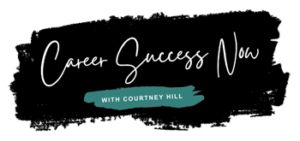At the end of most interviews will come the question, “Do you have any questions for us?” Standard advice over the interwebs is that you should always have questions to ask because it will make you look more prepared and leave a good impression. But, there is a much more critical reason to interview your interviewer.
I have worked for a few companies in my career. Some of them worked out great, while for others, after a few months of joining, I realized it wasn’t a great fit.
Joining a company and finding out it isn’t a good match never feels great. It can be hard to know if the company we are considering joining is a good fit (before actually joining them). But, we can increase the chances by doing a little bit of introspection and preparation.

How to apply the lists in an interview
Now, it’s unlikely that we will be able to walk into a job interview and run through our list of must-haves/deal-breakers like a checklist. After all, we can’t just ask our prospective boss if they are a micromanager. But we can look for signals that can help us evaluate them.
At this point, you might wonder, how do I do that?
- Make your own list of must-haves and deal-breakers.
- For each item in the list, write a question.
It’s essential to keep the questions conversational and not accusatory. We should also structure the question, so the interviewer has to provide examples.
Keep the list of questions handy, so you can ask questions throughout the interview as they relate to the topic being discussed.
My Must-Have List
- A high degree of autonomy and flexibility in managing my time and workload.
- Open communication among teammates and with management and Human Resources.
- Ability to choose my workplace tools, including both hardware and software.
- A clear and defined path toward career advancement (both in skills and compensation)
- Ability to work on non-work-related tasks for a few hours a week.
- Opportunity to spend time sharing my ideas on either mine or a company blog.
- Learning from mistakes / Blameless
- Inclusive Work environment
- Equality when it comes to stock options, reviews etc
My Deal Breaker List
- Expected overtime.
- T-shirts/ Shorts and Sandals are not allowed.
- Mandatory in-office days/ No remote working.
- If completely remote, there is no office space or compensation to pay for a shared office space.
- Mandatory after-hours on-call.
- Micro-management.
- Lots of meetings.
- Following Dogmatic Scrum and story pointing.
- Long-lived branches.
- No automated tests / over-reliance on manual QA.
- No QA / over-reliance on automated tests / only developers testing
- Hiring mainly seniors / Not many intermediates or juniors.
Note that these items are all about me, my values and what I want. They have very little to do with any particular job or workplace.
Turning the list into questions
Now that I have my must-have and deal-breaker lists, it’s time to turn them into questions. There might be overlapping questions, so it’s best to combine them.
Q: Can you walk me through your development process, from a ticket or task to code on production?
Relates to: Autonomy and Flexibility, Dogmatic Scrum, Lots of meetings
Q: How do you decide what products people work on? How much say do engineers have over what is built and how it’s built?
Relates to: Autonomy and Flexibility
Q: Do you encourage public discussions, especially for controversial topics and disagreements?
Relates to: Open Communication
Q: How are disagreements solved – technical disputes and other kinds? What happens when personalities clash?
Relates to: Open Communication
Q: How often does the leadership team discuss turnover percentages and other numbers
Relates to: Open Communication
Q: Can programmers use their preferred OS, code editor, and other tools?
Relates to: Workplace tools
Q: Do you have a career ladder and skill matrix with parallel IC and management tracks?
Relates to: Career Advancement
Q: Do you have a shared compensation matrix?
Relates to: Career Advancement
Q: What percentage of people have been promoted internally to leadership positions?
Relates to: Career Advancement
Q: What are further opportunities for this role? What is the next career level?
Relates to: Career Advancement
Q: How do you give back to the community? Open Source/ Blog Articles etc.? Is it encouraged?
Relates to: Ability to work on non-work-related tasks, Share Ideas
Q: Do you have regular retros? Process/Team and after features?
Relates to: Learning from mistakes
Q: What does the company do to ensure an inclusive work environment for transgender people, people with disabilities, single parents, and other under-represented folks? How is diversity represented within the team or company? Does HR get input for policies or people programs?
Relates to: Inclusiveness
Q: How responsive are people to emails/Slack over the weekends during the day and after 6pm?
Relates to: Overtime
Q: What is the on-call schedule?
Relates to: Mandatory on call
Q: How often are there emergencies or times when people have to work extra hours?
Relates to: Mandatory on-call, Expected overtime
Q: Are people compensated for being on call? How do you measure the impact on developers?
Relates to: Mandatory on call
Q: How often are engineers expected to provide status updates on a project?
Relates to: Autonomy and Flexibility, Micro-management
Q: Who sets deadlines, and what happens when people fail to meet them?
Relates to: Autonomy and Flexibility, Micro-management
Q: How often do you have meetings? Are there any scheduled/standing meetings?
Relates to: Lots of status meetings
Q: How does this team plan projects and create estimates?
Relates to: Autonomy and Flexibility, Dogmatic Scrum
Q: How often is the product released?
Relates to: Long-lived branches
Q: What is the median age for which an issue and a subsequent PR will be open?
Relates to: Long-lived branches
Q: What does your QA process look like?
Relates to: No automated tests
Q: What is the ratio of junior/intermediate/senior engineers?
Relates to: Hiring mainly seniors
Q: How do you ensure that junior engineers are supported?
Relates to: Hiring mainly seniors, Learning from mistakes
Q: Does everyone get equity allocation or a part of profit-sharing?
Relates to: Equality
Q: Can you give me an example of a mistake you’ve made here and how it was handled?
Relates to: Open Communication, Learning from mistakes
Q: Has there been a time when the engineering team was on the wrong course?
Relates to: Open Communication, Learning from mistakes
Q: Does the company collect workplace feedback? Have you ever acted on it?
Relates to: Learning from mistakes
Q: How do performance reviews work? Do engineers review their peers and managers? What do you do in case of a bad review of a manager?
Relates to: Equality, Career Advancement
What is an appropriate number of questions to ask?
This is quite an extensive list. We won’t be able to ask all of them in a single interview. Most interviews keep only the last couple of minutes for questions. However, when interviewing for jobs, there are often multiple rounds. I would suggest choosing questions to ask at the different stages. After all, some questions are better answered by a hiring manager, while others are better answered by someone working in a similar role.
One thing I have not tried so far but intend to try next time I am interviewing is conducting a reverse interview after I have negotiated the offer to get any unanswered questions answered.
Conclusion
A list of questions based on our must-haves and deal-breakers can give us the confidence to know that we are making the right decision. We can down positions or step away from the interview process where there isn’t a great fit. You owe it to yourself to find a place aligned with your values.


